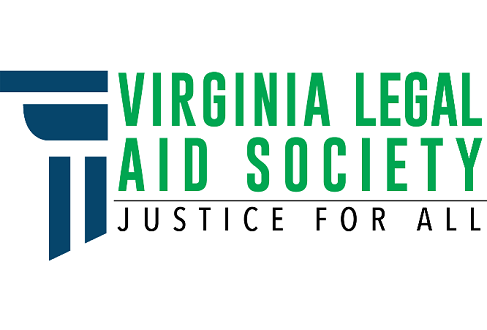To celebrate our 40th anniversary in 2017, Virginia Legal Aid Society is telling 40 stories that reflect our history, our people and the cases and events that have made the past 40 years so memorable. These will be released over 40 weeks, finishing at our gala celebration on November 17 in Farmville at the Moton Museum.
In this three-part story of Judge Joel Cunningham Sr., we take you through his career at VLAS and how that laid the groundwork for a successful and enduring private practice and, eventually, two decades and counting serving as a judge in the Tenth Judicial Circuit.
People find their career inspiration from all sorts of sources. Joel Cunningham found his from seeking to buy food.
It was the late 1960s, and Joel and his brother Butch were home from college, out on a weekend evening. After growing up in South Boston, Joel found his college professors inspiring, enabling him to see options he had never considered. That included options on late-evening dining choices near his home town.
A little after 10, they stopped at Victory Warehouse. They decided Joel would go in, while his brother wo

“For the first time, I saw how the law could be used as an effective tool to fight injustice and right wrongs.”
– Joel Cunningham
uld stay in the car.
“I was going to challenge these local establishments who did not allow African Americans to eat there,” he said. “We decided we were hungry. We had some money to buy something to eat. This place sold food. It was perfectly logical for us to go in there.”
The man behind the counter saw it differently.
“Boy, what the hell are you in here for? “ Joel remembers the man saying.
Joel assured him he just wanted something to eat and would leave immediately. That wasn’t good enough for the man.
“The man uttered a few terrible words, reached under the counter and pulled out a gun,” said Joel, who remembers him following that with, “If you don’t get your black ass out of here, I’m going to blow your f… brains out.”
His brother hadn’t fared any better. As Joel walked back to the car, he passed a man on the street. Joel found his brother was shaken. “That fellow you just passed threatened to kill me,” he said.
The brothers went straight to the Halifax County magistrate. The man at the restaurant was sentenced to six months in jail and wound up serving 30 days. That might not sound like a lot for threatening someone with a gun, but Joel had found his life’s work.
“This whole experience opened my eyes,” he said. “For the first time, I saw how the law could be used as an effective tool to fight injustice and right wrongs.” He decided to become a lawyer.
What kinds of clients would he serve? That question was probably settled before he ever left South Boston. “I knew about poverty,” Joel said. “My mom and dad were not blessed with a lot of money, but they had some money.” He knew plenty of kids who had only tea biscuits for breakfast, or nothing at all. Some of them brought Argo Starch, the kind made of cornstarch and used to stiffen clothes, for their lunch.
It took a few steps before he landed a job that would allow him to focus on serving low-income people. Upon graduating from University of Virginia Law School in 1975, Joel worked as an assistant attorney general before working as staff counsel for General Electric in Lynchburg, but quickly decided corporate work wasn’t for him. He became an Assistant Commonwealth’s Attorney in Halifax.
“Out of the blue, I get a telephone call from David Levy,” Virginia Legal Aid Society’s first executive director. Joel didn’t know David at the time and assumed David had heard of him through word of mouth. “David has this very, very soothing voice. He said, ‘I wonder if you would be interested in serving on the team I’m setting up in Southside Virginia.’ “
Soon Joel and Dale Pittman, who was with a similar legal aid program in Petersburg, were traveling US 58 from Danville to Suffolk in search of potential office sites for the group.
“It was a very exciting time,” Joel said. “It was the first effort, in a major way, to have the unmet civil needs of low-income people met.”
It took about a year to set up the seven offices: Lynchburg, Martinsville, Danville, Halifax, Farmville, Emporia, and Suffolk.
“We attracted some extremely talented people,” Joel said. “We felt we were all a statewide law firm, and everybody had his or her own field of expertise. It was just a beautiful combination of idealism and energy to make things better.”
And spunk. “We weren’t afraid to file a lawsuit,” Joel said. “I can tell you that.”
Next: Joel talks about some of his memorable VLAS cases, and what led to his leaving VLAS


